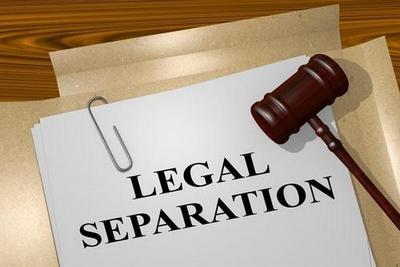Recent Blog Posts
Communicating Effectively During Divorce
 Navigating the divorce process can be an emotionally taxing experience for anyone. Depending on the circumstances, however, ending a marriage can be especially tough when one spouse refuses to cooperate or communicate. This is often the case when the relationship between the spouses has broken down due to distrust or outright cruelty or when communication has been a problem throughout the relationship.
Navigating the divorce process can be an emotionally taxing experience for anyone. Depending on the circumstances, however, ending a marriage can be especially tough when one spouse refuses to cooperate or communicate. This is often the case when the relationship between the spouses has broken down due to distrust or outright cruelty or when communication has been a problem throughout the relationship.
Common Communication Problems in Divorce
According to mental health professionals, many individuals exhibit certain behaviors that can create serious communication problems with their spouse. Such behavior can sabotage even the most mundane conversations, leading to a more difficult divorce for both spouses.
Relationship experts indicate that better results are possible and they can be achieved if both spouses exercise a little patience and focus on a few simple tips:
- Be polite: Being rude is never a good idea. Impoliteness can become an even bigger problem during a divorce when the target is your soon-to-be ex-spouse. Tension is usually high in the midst of a divorce, and the added insult of being rude can lead to anger, bitterness, and resentment. A hurt spouse is less likely to remain cooperative throughout the process.
What Are the Grounds for Divorce in Illinois?
 It is a fairly common belief among divorcing couples that one must have “grounds,” or a specific reason, for a divorce. Historically, requiring grounds for divorce often served a purpose, in that any future spouse could look up records and see if the person they had chosen was to blame for the failure of his or her previous marriage. Nowadays, that idea is less in vogue due to the lessened stigma surrounding divorce. While there are states that still allow divorce on fault grounds, Illinois is no longer among them.
It is a fairly common belief among divorcing couples that one must have “grounds,” or a specific reason, for a divorce. Historically, requiring grounds for divorce often served a purpose, in that any future spouse could look up records and see if the person they had chosen was to blame for the failure of his or her previous marriage. Nowadays, that idea is less in vogue due to the lessened stigma surrounding divorce. While there are states that still allow divorce on fault grounds, Illinois is no longer among them.
Fault Grounds
Up until a couple years ago, there were nine different grounds upon which a person could file for divorce—one of which was irreconcilable differences. The other eight all involved some alleged degree of fault. In other words, if a person’s spouse was guilty of any of the eight things listed as valid fault grounds, that person was permitted bring suit unilaterally to begin divorce proceedings. The grounds previously recognized in Illinois law were:
Parental Child Abduction in Illinois
 Sometimes, when child custody arrangements or plans to move do not go the way a parent would like them to, that parent may resort to extreme measures. In Illinois, parental abduction of a child (PAC) is a crime, but only under certain circumstances. Also, it helps to know what the ramifications might be on a parental responsibilities order if one parent commits such an act.
Sometimes, when child custody arrangements or plans to move do not go the way a parent would like them to, that parent may resort to extreme measures. In Illinois, parental abduction of a child (PAC) is a crime, but only under certain circumstances. Also, it helps to know what the ramifications might be on a parental responsibilities order if one parent commits such an act.
The Crime in Illinois
Many states, including Illinois, have criminalized the taking away of a child from the parent with primary custodial responsibilities by the other parent. However, in Illinois, there are strict guidelines about what constitutes an abduction and what does not.
Firstly, abduction and kidnapping do differ. The latter involves force or threats of force, while the former is accomplished usually with the subject’s consent—in this case, the child’s. The consequences differ between the two acts. Secondly, the father’s paternity is consideration, where in other states the question is irrelevant. Illinois law states that a parent may charge the other with child abduction if the charging parents has a court order granting him or her custodial rights. However, if he or she does not have an order, there are other ways a parent can be held accountable.
Untangling the Knot: When Assets Are Commingled
 One of the most complex and time-consuming parts of any divorce proceeding is the division of marital property. It can get even worse when marital and non-marital property are considered to be mixed. In order to reach a fair and equitable distribution of assets, a court must determine whether property has been commingled or not, and if so, to what extent.
One of the most complex and time-consuming parts of any divorce proceeding is the division of marital property. It can get even worse when marital and non-marital property are considered to be mixed. In order to reach a fair and equitable distribution of assets, a court must determine whether property has been commingled or not, and if so, to what extent.
Commingling Assets in Illinois
Commingling is defined as the act of mixing funds belonging to one person with funds belonging to another, especially when there is a responsibility to keep them separate. Sometimes, commingling funds is actually illegal or unethical, though spouses commingling marital and non-marital property is not. Marital property is any property acquired by either spouse during the marriage, while non-marital property is anything owned before the marriage by either spouse, or a gift or inheritance received by one spouse at any time (before or during the marriage). When the two meet, the status of the resulting property depends on which is the prime mover, so to speak.
Joint Simplified Dissolution of Marriage
 We always hear about the divorce cases that take months and years to settle. However, for every celebrated knock-down, drag-out fight in divorce court, there are countless couples that handle things quickly and quietly. If you and your spouse have no issues to hash out, there is a way to obtain a divorce with minimal fuss. However, ensuring you have everything you need can still be a complex task.
We always hear about the divorce cases that take months and years to settle. However, for every celebrated knock-down, drag-out fight in divorce court, there are countless couples that handle things quickly and quietly. If you and your spouse have no issues to hash out, there is a way to obtain a divorce with minimal fuss. However, ensuring you have everything you need can still be a complex task.
Uncontested Divorce in Illinois
Illinois has provisions for both contested and uncontested divorce. The latter simply means that you and your spouse do not have outstanding disagreements about any major issues in your divorce (maintenance, parental responsibilities, division of property, etc.). If you disagree on even one of these points, your divorce becomes “contested,” because a court proceeding is necessary to hammer out an agreement. A court appearance is necessary in an uncontested divorce as well, but it is merely a formality before a Judgment of Divorce can be entered.
Prenuptial Agreements in Illinois
 Many couples feel like premarital or prenuptial agreements take the romance out of what should be one of the most romantic times in their lives: getting married. However, prenuptial agreements (“prenups” for short) can make a huge difference if you wind up getting a divorce; they can cut down on arguments and misconceptions, and with the help of a good attorney, may save you months of legal wrangling and bad blood.
Many couples feel like premarital or prenuptial agreements take the romance out of what should be one of the most romantic times in their lives: getting married. However, prenuptial agreements (“prenups” for short) can make a huge difference if you wind up getting a divorce; they can cut down on arguments and misconceptions, and with the help of a good attorney, may save you months of legal wrangling and bad blood.
The Basics
Prenuptial agreements are used in many cultures throughout the world. For example, there are such things as Jewish prenuptial agreements, which safeguard a Jewish woman from being rendered unable to remarry. Each prenuptial agreement is based in mutual trust, but there are varying formats in which these agreements are created.
Many people still operate under the misconception that prenuptial agreements are only for the wealthy, when this is no longer the case. In Illinois, the Uniform Premarital Agreement Act (UPAA) was enacted in 1990, which sets out specific rules for couples in any tax bracket to follow. Women are also attaining more equality and financial power in our society, and, as such, prenuptial agreements are becoming more common.
Understanding Legal Separations
 When two people decide they no longer wish to be married, they normally file a petition and obtain a divorce. At any point there may come what is often called a “separation.” With rare exceptions, being “separated” is not a legal status. Legal separation does sometimes happen, but most of the time, it is simply unnecessary.
When two people decide they no longer wish to be married, they normally file a petition and obtain a divorce. At any point there may come what is often called a “separation.” With rare exceptions, being “separated” is not a legal status. Legal separation does sometimes happen, but most of the time, it is simply unnecessary.
When a Spouse Moves Out
When most couples separate, they simply decide not to live together anymore. One spouse may move out, and marital benefits like intimacy and cooperative decision-making typically cease. Such situation is not considered a legal separation, however. In the eyes of the law, most couples that are “separated” are still legally married, with all the positives and negatives of that status attached.
Trial separations are usually the last fix a couple tries before agreeing to divorce. Many couples live apart for weeks or months and are able to work out issues exacerbated by too long in proximity. Some couples who try a separation do work out a written agreement, but it is informal and not to be confused with a legal separation or a divorce decree. In this case, any written agreement is a sort of unofficial contract for the spouses to abide by, reminding them to reevaluate their situation in a certain amount of time.
Restricted Parenting Time: Keeping Both Parents in Their Children’s Lives
 Illinois law tries, whenever possible, to allow both parents to have parenting time—also called visitation—with their children. However, sometimes that is difficult to manage due to one or both parents’ having issues that would make it unsafe for them to be around their children alone. The answer to this problem is to have supervised or restricted visitation, and to see how a parent fares before permitting him or her to engage in unsupervised visitation.
Illinois law tries, whenever possible, to allow both parents to have parenting time—also called visitation—with their children. However, sometimes that is difficult to manage due to one or both parents’ having issues that would make it unsafe for them to be around their children alone. The answer to this problem is to have supervised or restricted visitation, and to see how a parent fares before permitting him or her to engage in unsupervised visitation.
General Parenting Time Guidelines
A standard visitation agreement is often rather vague, allowing the parents themselves to regulate the terms of the visits. The parent with fewer parental responsibilities entitled, as a general rule, to parenting time unless a court disagrees, and in many instances, the parents are able to work out a schedule that suits all involved. However, if one parent has issues, the court may take action.
Divorce Mediation: Is It For You?
 When two people decide to get a divorce, the process is likely to be stressful and difficult. However, more and more couples are turning to mediation as a way to potentially avoid costly court battles. It is not the right option for every couple, but it is generally worth investigating to see if it might be right for you and your spouse.
When two people decide to get a divorce, the process is likely to be stressful and difficult. However, more and more couples are turning to mediation as a way to potentially avoid costly court battles. It is not the right option for every couple, but it is generally worth investigating to see if it might be right for you and your spouse.
Benefits of Mediation
Divorce mediation is a process in which you and your spouse engage the services of a neutral, third-party mediator in an attempt to work out a divorce agreement without resorting to litigation. It has several advantages, but may also have drawbacks depending on the situation. Anything from parental responsibilities (child custody) to spousal support may be mediated if the spouses agree. Illinois law does not mandate certain elements of a divorce to be decided by a judge, but a judge will review any agreements related to your children to ensure you have their best interests in mind.
Are Your Legal Fees for Divorce Tax Deductible?
 In this day and age, many people are always looking for tax deductions, but most do not think to look to the fees associated with a divorce to find them. Yet it is possible to claim certain divorce-related expenses as tax deductible, and the deductions can add up. Being aware of such possibilities can make a significant difference in your end-of-the-year tax bill.
In this day and age, many people are always looking for tax deductions, but most do not think to look to the fees associated with a divorce to find them. Yet it is possible to claim certain divorce-related expenses as tax deductible, and the deductions can add up. Being aware of such possibilities can make a significant difference in your end-of-the-year tax bill.
Alimony
The Internal Revenue Service (IRS) Code clearly states that you may not deduct the cost of “counseling, litigation, or personal advice.” However, if you are a spouse seeking maintenance—also known as alimony—in a divorce there are some fees that you may be able to claim as deductions. If you incur fees such as filing fees while in the process of seeking alimony, you are able to claim many of them as miscellaneous deductions. The important thing to remember is that the claimed deductions related to alimony may not exceed more than two percent of the person’s adjusted gross income (AGI), which for most people is a fairly small number.











 630-352-2240
630-352-2240



